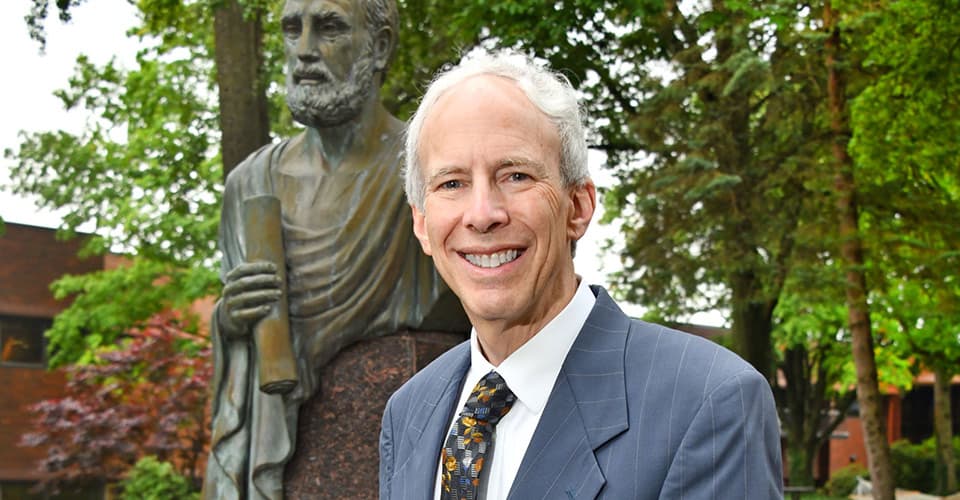Marc Basson, M.D., Ph.D., M.B.A, joined NEOMED in July as the new dean of the College of Medicine. The Pulse sat down with Dr. Basson to learn more about how he is settling into Northeast Ohio, advice for first-year students, and what is next for the College of Medicine.
How have you been settling in Northeast Ohio after arriving from North Dakota in July?
We are settled in and almost completely unpacked (finally!). We are really enjoying exploring the area.
What’s something that has surprised you about being at NEOMED thus far?
The passion and energy that our faculty and our students bring to the institution and the joint effort of producing the next generation of physicians.
What advice do you have for first-year medicine students who are just starting their journey at NEOMED?
Believe in yourselves. Study hard and keep studying in an integrative way the material that you’ve already learned, but at the same time, take care of yourself. Wellness counts! You can’t learn if you don’t sleep and relax.
What are some of the biggest changes in medicine you’ve experienced since the start of your career?
As a surgeon, I’d have to point to the development of minimally invasive surgery.
What are some challenges you hope to address in your first year as dean?
The major challenge is to pull together the entire community of faculty, students and administration to support our students and deliver an outstanding education.
What is something you look forward to during your first year at NEOMED?
Continuing to improve the way we teach and support our students in partnership with the students and the faculty, with the benefit of their enthusiastic feedback.
Could you expound a little on how the College will improve teaching and support students?
We are addressing both curricular and co-curricular issues to support the students.
On the curricular side, we have formed faculty/student task groups to look at hot button curricular issues such as attendance requirements and text material, rolled out faculty development exercises to help our clinical faculty teach more effectively within our preclinical curriculum, and hired an external consultant to help us more closely align our learning objectives and assessments with national licensure examination requirements. I have also challenged our clinical chairs to engage more fully with our clerkship directors in managing our clinical learning experiences.
In the co-curricular arena, we are designing an asynchronous (tuition-free) pre-matriculation program to help all our students enter medical school with the same excellent level of premedical preparation, running regular exam preparation and review sessions during the first two years of school, and creating a board examination review course to be offered at the end of the second year. We are also partnering with the University to expand learning center support and hope to expand debt management counseling. We are also actively seeking philanthropic support to create more student scholarships to reduce the student debt load, which is a major source of student stress.
Any predictions for the future of medicine or medical education?
The amount of information our students must master is increasing exponentially, and yet the time for the typical medical school curriculum is still four years. This is going to continue to pose challenges for our students. Medical education is going to be increasingly dependent on active learning, which is how students learn best, but at the same time, we are going to have to as a profession eventually make some difficult triage decisions as to what our students really need to learn. Artificial intelligence, if used wisely, can eventually help supplement physicians’ knowledge base, so that they can focus less on dredging up memorized material and more on inferential reasoning to arrive at diagnoses and choose appropriate therapy.
